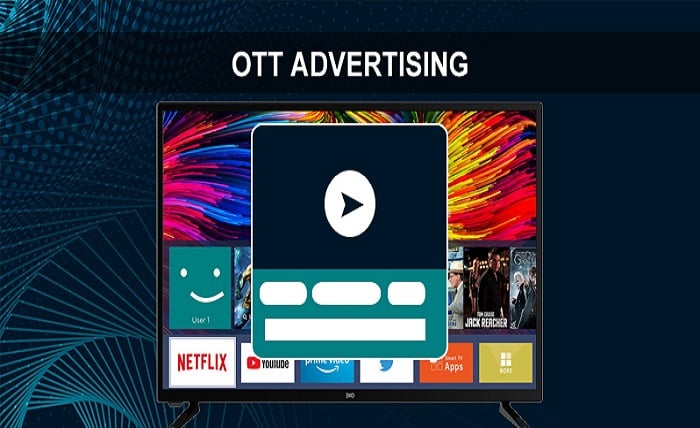Optimizing Your Campaigns with OTT Advertising

In today’s rapidly evolving digital landscape, advertisers are constantly seeking innovative ways to reach their target audiences effectively. One such method that has gained significant traction is OTT advertising. Leveraging the power of over-the-top (OTT) platforms, advertisers can deliver tailored content directly to viewers via internet-connected devices. This approach not only enhances reach but also offers precise targeting capabilities that traditional TV advertising often lacks.
What is OTT Advertising?
OTT advertising refers to the delivery of ads through streaming services that bypass traditional cable or satellite TV. This includes services like Hulu, Netflix, and other streaming platforms that viewers access through devices such as smart TVs, gaming consoles, or streaming sticks. Unlike traditional TV advertising, OTT advertising allows for more interactive and personalized ad experiences.
Benefits of OTT Advertising
- Targeted Reach: OTT platforms collect vast amounts of data, enabling advertisers to target specific demographics, interests, and behaviors.
- Enhanced Engagement: Interactive ad formats and on-demand content increase viewer engagement compared to traditional TV ads.
- Measurable Results: With OTT, advertisers can track ad performance in real-time, allowing for adjustments and optimizations.
Key Strategies for Optimizing OTT Advertising Campaigns> Define Clear Objectives
Before launching an OTT campaign, it is crucial to establish clear objectives. Are you aiming for brand awareness, lead generation, or direct sales? Defining your goals will guide your overall strategy and help in measuring success.
> Audience Segmentation
One of the primary advantages of OTT advertising is its ability to target specific audience segments. Utilize the platform’s data analytics to segment your audience based on:
- Demographics: Age, gender, income level, etc.
- Geographics: Location-specific targeting.
- Psychographics: Interests, lifestyles, and preferences.
- Behavioral Data: Past interactions and viewing habits.
> Creative Ad Formats
OTT platforms offer various ad formats that can be leveraged to enhance engagement:
- In-Stream Video Ads: These are similar to traditional TV ads but can be targeted more precisely.
- Interactive Ads: Encourage viewers to interact with the ad through clickable elements.
- Overlay Ads: Small banner-like ads that appear on the screen without interrupting the viewing experience.
> Utilize Connected TV Advertising
Connected TV (CTV) refers to any TV set that is connected to the internet and can stream content beyond what is offered by traditional cable providers. Incorporating CTV advertising into your strategy can significantly increase your campaign’s reach and effectiveness. With CTV, you can:
- Access a Larger Audience: Reach viewers who prefer streaming services over traditional TV.
- Leverage Data-Driven Insights: Use data collected from CTV devices to refine targeting and enhance ad relevance.
> Programmatic Advertising
Programmatic advertising automates the buying and selling of ads in real-time, using algorithms and data insights. This approach ensures that your ads are shown to the right people at the right time, maximizing efficiency and effectiveness. Key benefits include:
- Real-Time Bidding: Purchase ad space in real-time, ensuring cost-effective placements.
- Improved Targeting: Use data to reach specific audience segments more accurately.
- Scalability: Easily scale your campaigns based on performance and budget.
Performance Marketing and Demand Generation> Performance Marketing
Performance marketing is all about results. It focuses on driving specific actions such as clicks, leads, or sales. In the context of OTT advertising, performance marketing can be enhanced by:
- Tracking Key Metrics: Monitor metrics such as view-through rates (VTR), completion rates, and click-through rates (CTR).
- A/B Testing: Test different ad creatives and strategies to determine what resonates best with your audience.
- Retargeting: Re-engage viewers who have previously interacted with your ads but did not convert.
> Demand Generation
Demand generation focuses on creating awareness and interest in your product or service, ultimately driving demand. For OTT campaigns, this involves:
- Content Marketing: Create compelling content that educates and informs your audience.
- Cross-Platform Strategies: Integrate OTT campaigns with other digital marketing efforts such as social media and email marketing.
- Brand Storytelling: Use the visual and narrative capabilities of video ads to tell a compelling brand story.
Measuring and Optimizing Your Campaigns> Key Metrics to Track
To ensure the success of your OTT advertising campaigns, it’s essential to track and analyze key performance metrics:
- Impressions: The number of times your ad is shown.
- Reach: The number of unique viewers who see your ad.
- Engagement Rate: The percentage of viewers who interact with your ad.
- Conversion Rate: The percentage of viewers who take the desired action after seeing your ad.
> Continuous Optimization
OTT advertising allows for continuous optimization based on real-time data. Regularly review your campaign performance and make necessary adjustments. This could involve tweaking your targeting parameters, testing new ad creatives, or reallocating your budget to high-performing segments.
> Leveraging Data and Analytics
Use the data provided by OTT platforms to gain insights into viewer behavior and preferences. This data can help you:
- Refine Targeting: Identify which audience segments are most responsive to your ads.
- Improve Ad Creative: Determine which ad formats and messages resonate best with your audience.
- Optimize Spend: Allocate your budget more effectively based on performance data.
Conclusion
OTT advertising presents a powerful opportunity for advertisers to reach and engage with their target audiences in a more personalized and measurable way. By defining clear objectives, utilizing audience segmentation, leveraging connected TV advertising, and employing programmatic techniques, you can optimize your campaigns for better performance. Regularly tracking key metrics and continuously optimizing based on data insights will ensure your OTT advertising efforts drive significant results.
Embrace the potential of OTT advertising to stay ahead in the competitive digital landscape and connect with your audience like never before.




